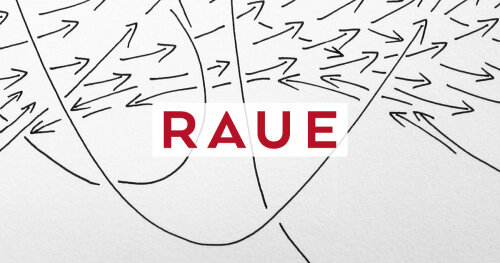Best International Trade Law Lawyers in Berlin
Share your needs with us, get contacted by law firms.
Free. Takes 2 min.
List of the best lawyers in Berlin, Germany
About International Trade Law in Berlin, Germany
International Trade Law in Berlin, Germany, is an integral part of the country's legal system, given Germany's significant role in the global economy. The city, as Germany's capital, serves as a hub for international trade activities. This area of law encompasses various aspects, including import-export regulations, trade agreements, customs duties, and international contracts. Berlin is home to numerous law firms specializing in international trade, equipped to handle complex cases related to global commerce.
Why You May Need a Lawyer
There are several situations where seeking legal assistance from a lawyer specializing in International Trade Law can be beneficial. These may include dealing with disputes related to import and export activities, complying with international trade regulations, negotiating international sales contracts, handling cross-border investments, resolving tariff issues, and addressing issues related to trade barriers and sanctions. Competent legal advice can help businesses navigate complexities and maximize their opportunities in the international market effectively.
Local Laws Overview
Germany's legal framework for international trade is influenced by its membership in the European Union (EU) and adherence to World Trade Organization (WTO) rules. Key aspects of local laws that are pertinent include the EU’s Common Commercial Policy, which governs trade relationships and agreements with non-EU countries, and the German Export Control Law, which regulates the export of goods and technologies. Additionally, the Customs Code of the EU is applicable, which includes regulations about the import and export of goods into the EU member states, including Germany.
Frequently Asked Questions
What is International Trade Law?
International Trade Law refers to the set of laws and regulations that govern trade between countries, including the sale and distribution of goods and services across international borders.
How does the EU's Common Commercial Policy affect trade in Berlin?
The Common Commercial Policy of the EU provides a unified framework for trade negotiations and policy-making across all EU member states, including Germany, which helps streamline trade processes and reduce barriers in trade with non-EU countries.
What are some common issues businesses face in international trade?
Businesses often encounter issues such as compliance with diverse international regulations, customs procedures, intellectual property rights protection, and the impact of tariffs and trade sanctions.
When should I consult a lawyer specializing in International Trade Law?
Consultation with a lawyer is advisable when engaging in cross-border transactions, dealing with legal disputes in international trade, drafting or negotiating international contracts, and when facing regulatory compliance concerns.
What role do international trade agreements play?
International trade agreements lay down the rules for trade between countries, helping reduce trade barriers, establish regulations, and provide legal certainty for businesses engaging in international commerce.
How is trade compliance managed in Germany?
Trade compliance in Germany involves adhering to EU regulations, German national laws, and international treaties. Companies often employ compliance officers and consult legal professionals to ensure adherence to relevant laws.
What export controls exist in Germany?
Germany's Export Control Law governs the export of military goods and dual-use items, requiring businesses to obtain licenses for the export of certain products and technologies.
How can businesses handle disputes in International Trade Law?
Businesses can handle disputes through negotiation, mediation, or arbitration, as stipulated in international contracts; litigation might also be necessary in some cases.
What are customs duties, and how are they applied?
Customs duties are taxes imposed on goods as they move across international borders, affecting the price of imported and exported items, with fees varying based on origin, destination, and value of goods.
Is Berlin a good location for international trade businesses?
Yes, Berlin is strategically positioned within Europe and offers a robust legal and economic infrastructure, making it an ideal location for businesses involved in international trade.
Additional Resources
For those seeking additional assistance, several resources are available in Berlin. The Bundesamt für Wirtschaft und Ausfuhrkontrolle (BAFA) provides guidance on export control policies. The International Chamber of Commerce (ICC) Germany offers support on trade policies and practices, while law firms specializing in international trade can provide expert legal counsel. Furthermore, government bodies like the German Trade & Invest (GTAI) can be helpful resources for understanding the intricacies of trade in Germany.
Next Steps
If you require legal assistance in the field of International Trade Law, consider consulting with a qualified lawyer specializing in this area. Begin by researching law firms in Berlin that offer expertise in international trade. Ensure that the firm or lawyer has a good reputation and experience in handling cases similar to yours. Once you have shortlisted potential firms or lawyers, schedule consultations to discuss your case and understand the potential strategies and outcomes. This approach will help you make an informed decision and ensure effective legal representation.
Lawzana helps you find the best lawyers and law firms in Berlin through a curated and pre-screened list of qualified legal professionals. Our platform offers rankings and detailed profiles of attorneys and law firms, allowing you to compare based on practice areas, including International Trade Law, experience, and client feedback.
Each profile includes a description of the firm's areas of practice, client reviews, team members and partners, year of establishment, spoken languages, office locations, contact information, social media presence, and any published articles or resources. Most firms on our platform speak English and are experienced in both local and international legal matters.
Get a quote from top-rated law firms in Berlin, Germany — quickly, securely, and without unnecessary hassle.
Disclaimer:
The information provided on this page is for general informational purposes only and does not constitute legal advice. While we strive to ensure the accuracy and relevance of the content, legal information may change over time, and interpretations of the law can vary. You should always consult with a qualified legal professional for advice specific to your situation.
We disclaim all liability for actions taken or not taken based on the content of this page. If you believe any information is incorrect or outdated, please contact us, and we will review and update it where appropriate.















